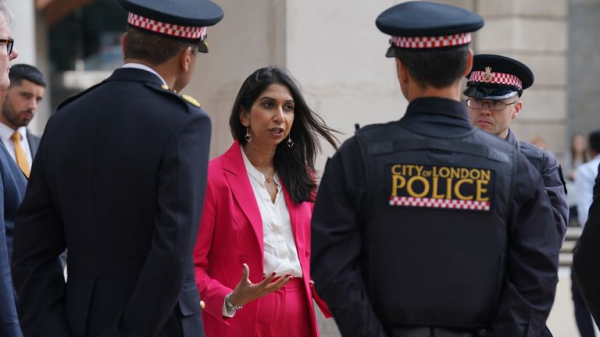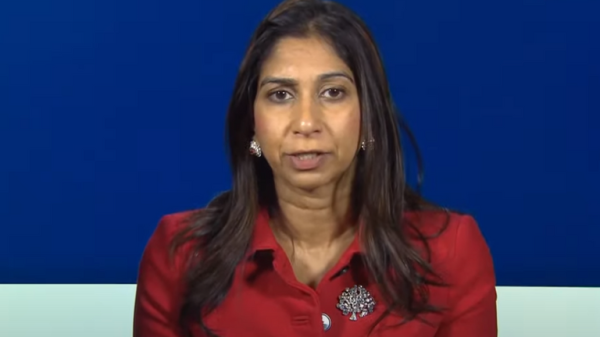
The home secretary has ordered a review into how “political activism” among officers, including actions like taking the knee, is impacting policing.
Suella Braverman has commissioned His Majesty’s Inspectorate of Constabulary to look into impartiality and written to police chiefs to remind them their “focus should be on tackling crime”.
In the letter, she highlighted cases where she believes public confidence has been damaged including policing gender-critical views on social media, conduct at political marches and officers taking the knee.
She told the Daily Telegraph newspaper she was concerned about police “pandering to politically correct causes”, telling the paper officers should not refer to rapists as “she” or “her” or dance with protesters.
Announcing the review on Saturday, Ms Braverman said: “The British people expect their police to focus on cutting crime and protecting communities – political activism does not keep people safe, solve crimes or support victims, but can damage public confidence.

“The review I’ve commissioned will explore whether the police getting involved in politically contentious matters is having a detrimental impact on policing. I will leave no stone unturned in ensuring policing acts for the benefit of the British public.”
But the Police Federation, which represents rank-and-file officers in England and Wales, accused the government of constantly changing the goalposts and said policing should not be “kicked around like a political football”.
A Labour spokesperson said: “Instead of setting out serious and practical policies to tackle Tory failures, all the home secretary is doing is commissioning reports into her own political obsessions – and while she’s doing this, more criminals are being let off and more victims are being let down.”
Ms Braverman, who once railed against the “tofu-eating wokerati”, is regarded as a divisive figure for her remarks on so-called “culture war” issues.
She was previously reported to have intervened over a case in which five officers were sent to seize a collection of golliwog dolls from a pub by reprimanding the force involved.
In a letter to Andy Cooke, HM Chief Inspector of Constabulary, she asked for his report to be prepared by the end of March.
“When officers adopt or participate in political or social campaigns, for example, by taking the knee, they risk losing the support of the public,” she wrote.
“This is not common sense policing and I hope that we can work together to prevent police, especially those in leadership positions, from committing themselves to more and more identity-related causes.”
She said involvement in “political matters” may include “commenting on and responding to commentary on contested issues, and the involvement of policing more generally in issues such as, but not limited to, ‘gender identity’ politics, critical race theory or climate activism.”
Police Federation deputy chair Tiffany Lynch said: “Policing should never be put on any political agenda and is too important to be kicked around like a political football.
“Our members want to go out there and serve communities in the best way possible, but need help when the government constantly changes the goalposts.
“One minute they want police officers to be more involved, the next they want them to act like robots.”
It came at the end of the government’s so-called crime week of linked announcements, including plans to make it easier for police chiefs to sack rogue officers and new powers to make criminals attend sentencing hearings.
